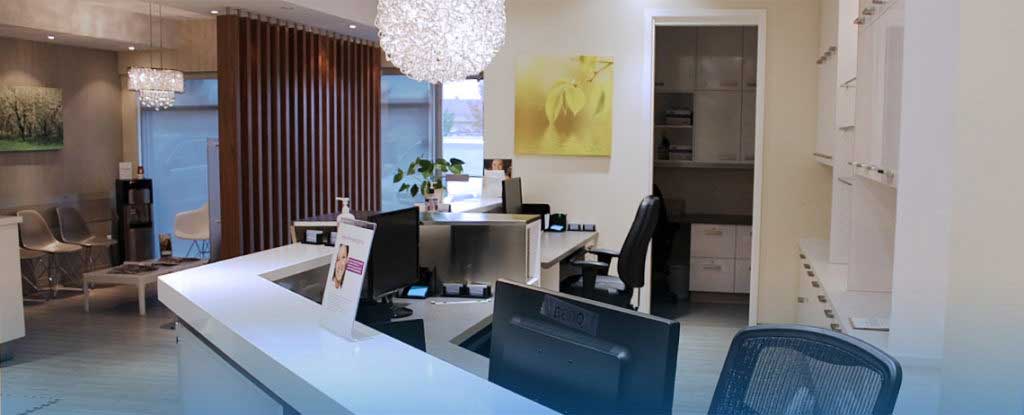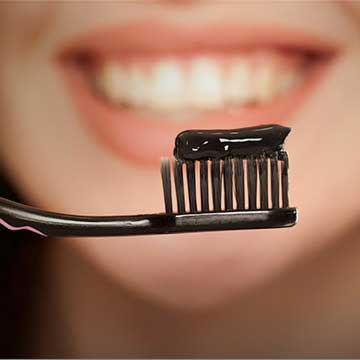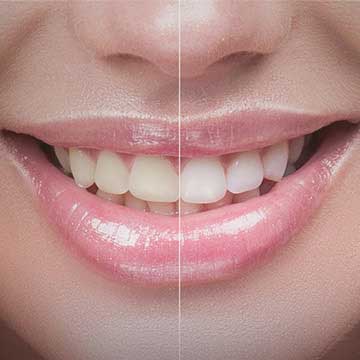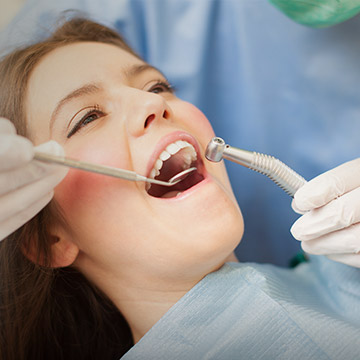Tooth sensitivity or the occasional bout of bad breath usually aren’t cause for concern. But, how do you know what’s harmless and what warrants a visit to your dentist? Here are 7 signs of dental trouble, what the cause could be, and when to see your dentist.
Bleeding, Swollen, or Tender Gums
We’ve all been told by our dentist that our gums shouldn’t bleed, but what do bleeding gums really mean? Bleeding, swollen, or tender gums could be a sign of gingivitis, which is early-stage gum disease.
The good news is, gingivitis is reversible when it is caught early. To help prevent gingivitis, make sure you’re brushing your teeth twice a day and flossing once a day. When brushing, use fluoride toothpaste and make sure you’re brushing at the gumline, which is where the bacteria lives.
If you’re practicing good oral hygiene and your gums are still bleeding, it’s time to visit the dentist. It’s especially important to visit the dentist if you notice your gums bleeding a lot, or if you notice receding gums (gums pulling away from your teeth, making them look longer). Receding gums and excessive bleeding could be signs of advancing gum disease.
Constant Bad Breath
Bad breath after you eat certain foods is normal, but it should subside after you brush your teeth. Constant bad breath, on the other hand, could be a sign of gum disease. Consistent bad breath can also be caused by dry mouth, smoking, and certain medications and medical conditions like sinus infections or diabetes.
If you’re concerned about your bad breath, it’s a good idea to talk to your dentist. Your dentist can determine the cause of your bad breath and recommend the appropriate treatment.
Sensitivity to Hot & Cold
1 in 8 adults has sensitive teeth. While it might be a common problem, it isn’t something that should be ignored. If you experience pain when consuming hot or cold food or drinks, your dentist can help determine the cause of the problem.
Sensitive teeth could be a sign of gum recession, which is often a symptom of gum disease. Tooth sensitivity in a small area, like on a specific tooth, could be a sign of tooth decay (cavities), broken or cracked teeth, worn fillings, worn enamel, or tooth clenching and grinding.
Visit your dentist if you’re experiencing localized tooth sensitivity, especially if you have fillings or notice a broken tooth. That said, even general tooth sensitivity can be addressed by your dentist and provide you with relief.
Ulcers, Sores, & Painful Spots
Painful spots in the mouth like canker sores and cold sores aren’t uncommon, but they should heal within 1 to 2 weeks. If you have sore that hasn’t healed within 2 weeks, visit your dentist.
Long-lasting sores, especially sores that are open and bleeding, could be signs of oral cancer. Also be on the lookout for white or red patches, small lumps, or numbness and tingling when it comes to oral cancer.
In other cases, sores that don’t go away could be caused by irritation from a broken tooth or filling, which also need to be addressed by your dentist. Whatever the cause, your dentist will be able to help determine the appropriate treatment.
Pus or Inflammation
The same as other areas of the body, pus or inflammation in the mouth is a sign of infection. Pus can accumulate in and around the tooth when it is infected. Also known as a tooth abscess, this pocket of pus can be caused by severe gum disease (periodontitis) or an untreated cavity.
Any sign of pus, inflammation, or infection warrants an immediate visit to your dentist for an emergency appointment. Your dentist can prescribe antibiotics to stop the infection and drain the area if necessary. These steps will prevent the infection from spreading to your jaw and other teeth, causing further pain.
Pain or Toothache
Pain or toothaches can indicate a number of dental problems, including disease, infection and tooth decay. Pain, especially when chewing or biting, could be a sign of a cavity, a cracked tooth, or an infected tooth. If you do have a cavity, your dentist will likely recommend a dental filling, unless the decay is too deep and has infected the nerve of the tooth. In other cases, pain can be caused by gum disease or an abscessed tooth.
Pain, especially severe or throbbing pain, means you should visit your dentist immediately. These are often signs of infection, which needs to be treated right away to prevent it from spreading.
Loose or Moving Teeth
Teeth can shift slightly, especially if you’ve had braces in the past. However, healthy adult teeth should not feel loose or move suddenly or dramatically. Wiggly teeth, especially when accompanied by bleeding or swollen gums, can be a sign of severe gum disease (periodontitis) or an abscessed tooth.
You may also notice a change in how your teeth fit together or changes in how your teeth fit if you have partial dentures. If your teeth are loose or moving, visit the dentist immediately. It could be a symptom of advanced gum disease and infection that has spread to your gums and jaw.
When to See Your Dentist
Dentists are your partner in ensuring your oral health. Whenever you have a concern about your teeth, jaw, or gums, it’s best to get a second opinion from your dentist. During a dental exam, your dentist can assess whether your problem is benign or a sign of something more serious.
Along with good oral hygiene, regular dental visits help ensure optimal oral health. If you have a question or concern about your mouth health, book an appointment today.









